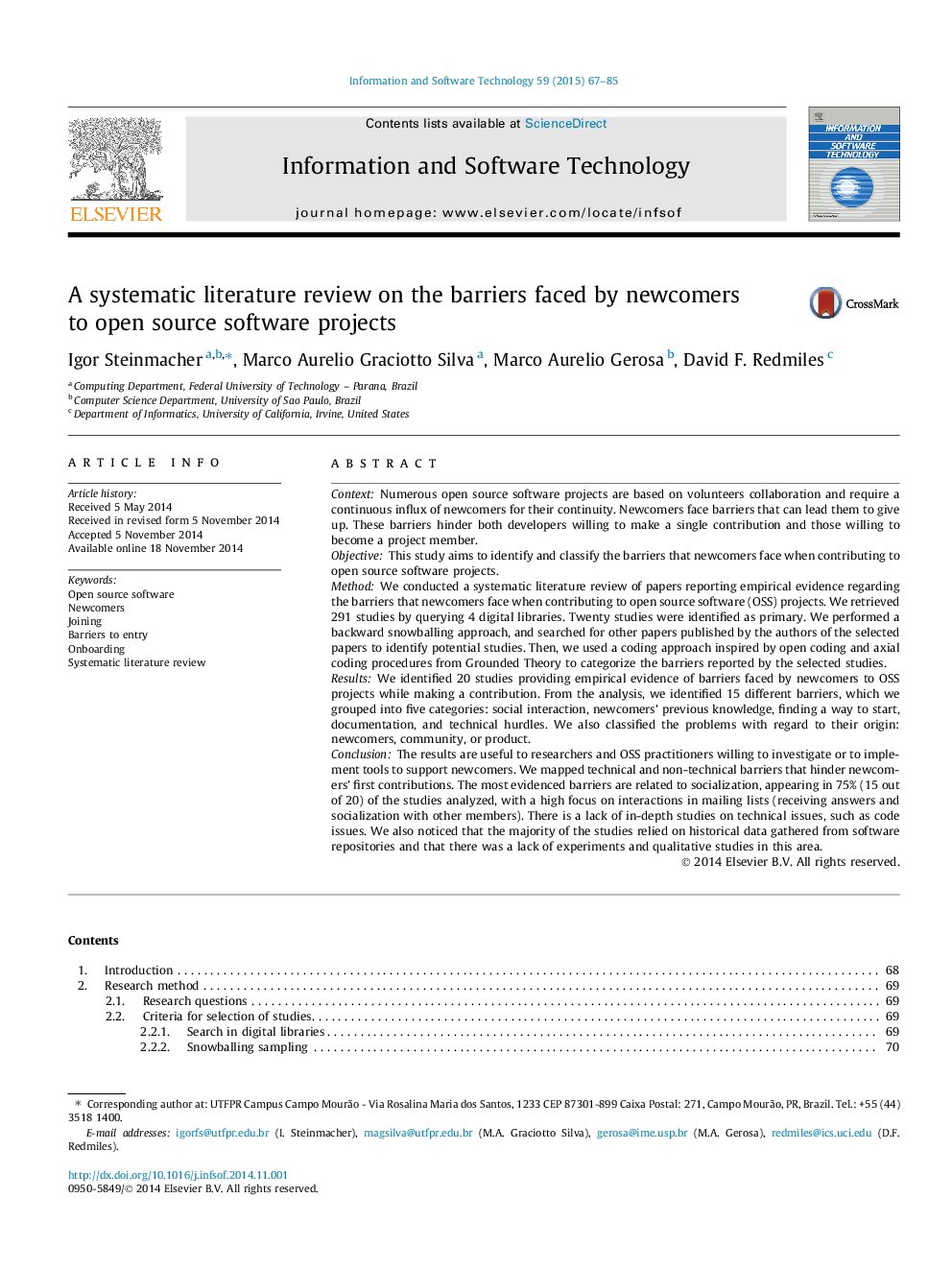| Article ID | Journal | Published Year | Pages | File Type |
|---|---|---|---|---|
| 550136 | Information and Software Technology | 2015 | 19 Pages |
ContextNumerous open source software projects are based on volunteers collaboration and require a continuous influx of newcomers for their continuity. Newcomers face barriers that can lead them to give up. These barriers hinder both developers willing to make a single contribution and those willing to become a project member.ObjectiveThis study aims to identify and classify the barriers that newcomers face when contributing to open source software projects.MethodWe conducted a systematic literature review of papers reporting empirical evidence regarding the barriers that newcomers face when contributing to open source software (OSS) projects. We retrieved 291 studies by querying 4 digital libraries. Twenty studies were identified as primary. We performed a backward snowballing approach, and searched for other papers published by the authors of the selected papers to identify potential studies. Then, we used a coding approach inspired by open coding and axial coding procedures from Grounded Theory to categorize the barriers reported by the selected studies.ResultsWe identified 20 studies providing empirical evidence of barriers faced by newcomers to OSS projects while making a contribution. From the analysis, we identified 15 different barriers, which we grouped into five categories: social interaction, newcomers’ previous knowledge, finding a way to start, documentation, and technical hurdles. We also classified the problems with regard to their origin: newcomers, community, or product.ConclusionThe results are useful to researchers and OSS practitioners willing to investigate or to implement tools to support newcomers. We mapped technical and non-technical barriers that hinder newcomers’ first contributions. The most evidenced barriers are related to socialization, appearing in 75% (15 out of 20) of the studies analyzed, with a high focus on interactions in mailing lists (receiving answers and socialization with other members). There is a lack of in-depth studies on technical issues, such as code issues. We also noticed that the majority of the studies relied on historical data gathered from software repositories and that there was a lack of experiments and qualitative studies in this area.
Graphical abstractFigure optionsDownload full-size imageDownload as PowerPoint slide
